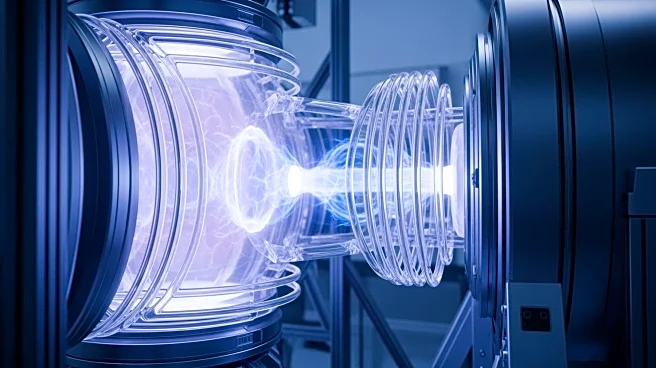What's Happening?
Nuclera, a biotechnology company, has partnered with Solve Scientific Australia to expand access to its eProtein Discovery System in Australia and New Zealand. This move is part of Nuclera's global expansion strategy, aiming to provide rapid access to functional
proteins for drug discovery. The partnership will support the growing Asia Pacific recombinant protein market, projected to reach $1,455 million by 2030. The eProtein Discovery System utilizes digital microfluidics and cell-free protein synthesis to streamline protein production, significantly reducing time and costs compared to traditional methods.
Why It's Important?
The expansion of Nuclera's eProtein Discovery System into new markets is crucial for accelerating drug discovery processes. By providing faster and more efficient access to functional proteins, researchers can expedite the development of new therapeutics, potentially leading to quicker advancements in healthcare. This expansion also supports the growing demand in the Asia Pacific region, enhancing local research capabilities and fostering innovation. The partnership with Solve Scientific ensures localized support and expertise, strengthening Nuclera's presence in key markets and contributing to the global biotechnology landscape.
What's Next?
Nuclera's partnership with Solve Scientific is expected to facilitate further collaborations and innovations in the biotechnology sector. As the Asia Pacific market continues to grow, Nuclera may explore additional partnerships and distribution agreements to expand its reach. The company will likely focus on enhancing its technology and support services to meet the evolving needs of researchers and maintain its competitive edge in the industry. Stakeholders, including researchers and healthcare providers, will monitor the impact of this expansion on drug discovery and therapeutic development.
Beyond the Headlines
The introduction of advanced protein synthesis technologies like Nuclera's eProtein Discovery System could lead to significant shifts in research methodologies and industry standards. By reducing reliance on traditional cell-based methods, the biotechnology sector may experience increased efficiency and innovation, potentially transforming drug discovery and development processes.
















